Bloomington’s annual Life Chain demonstration precedes city budget decisions
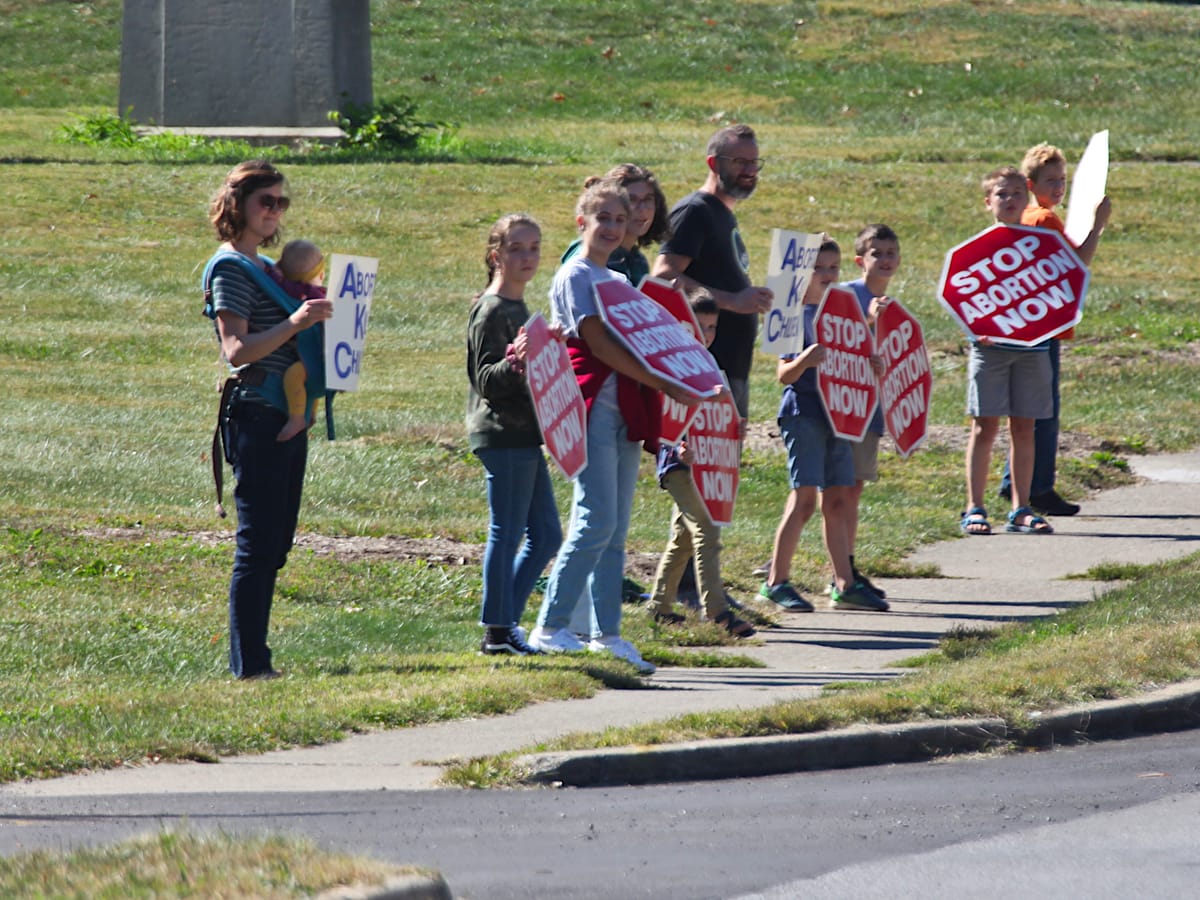
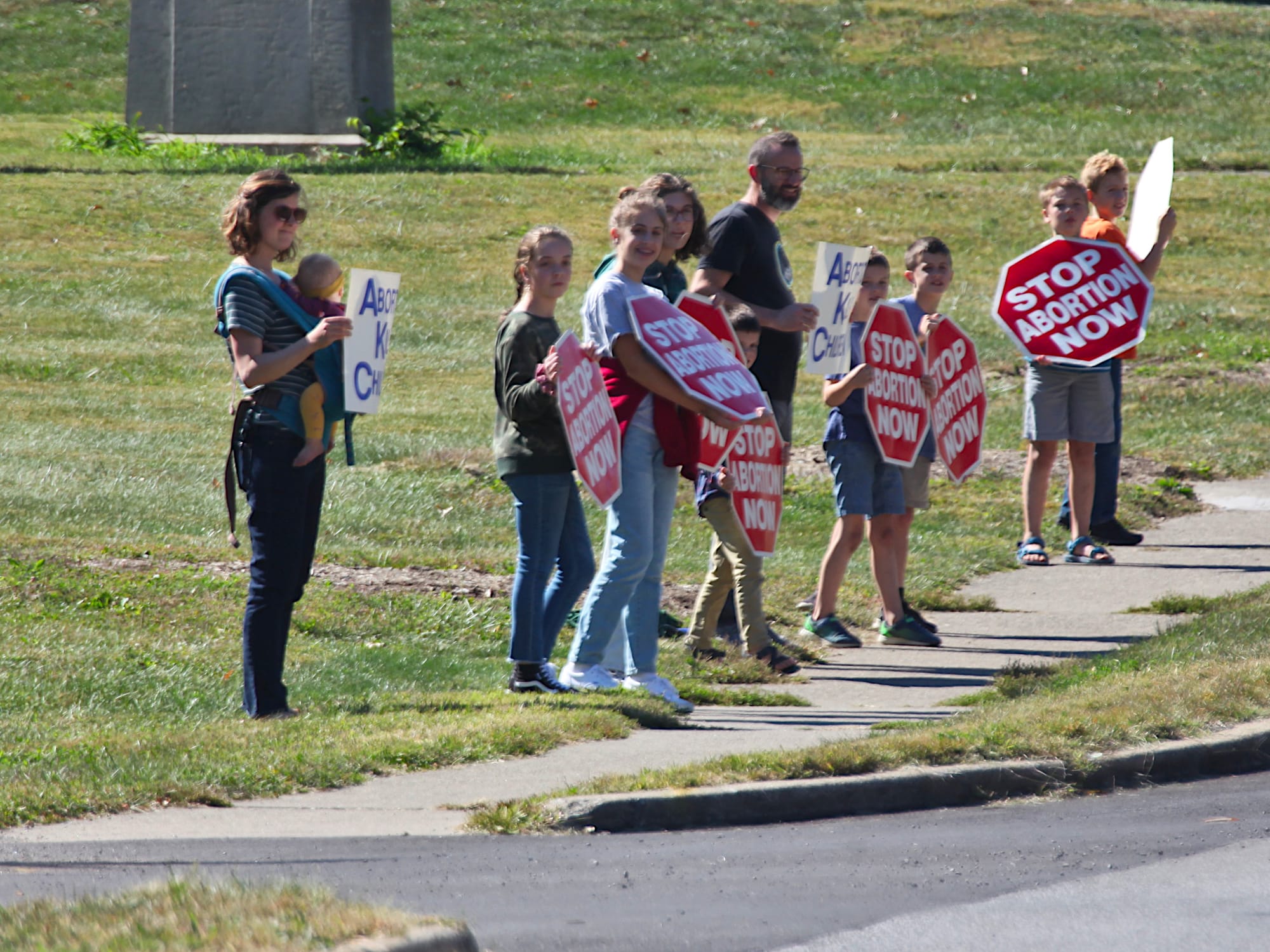
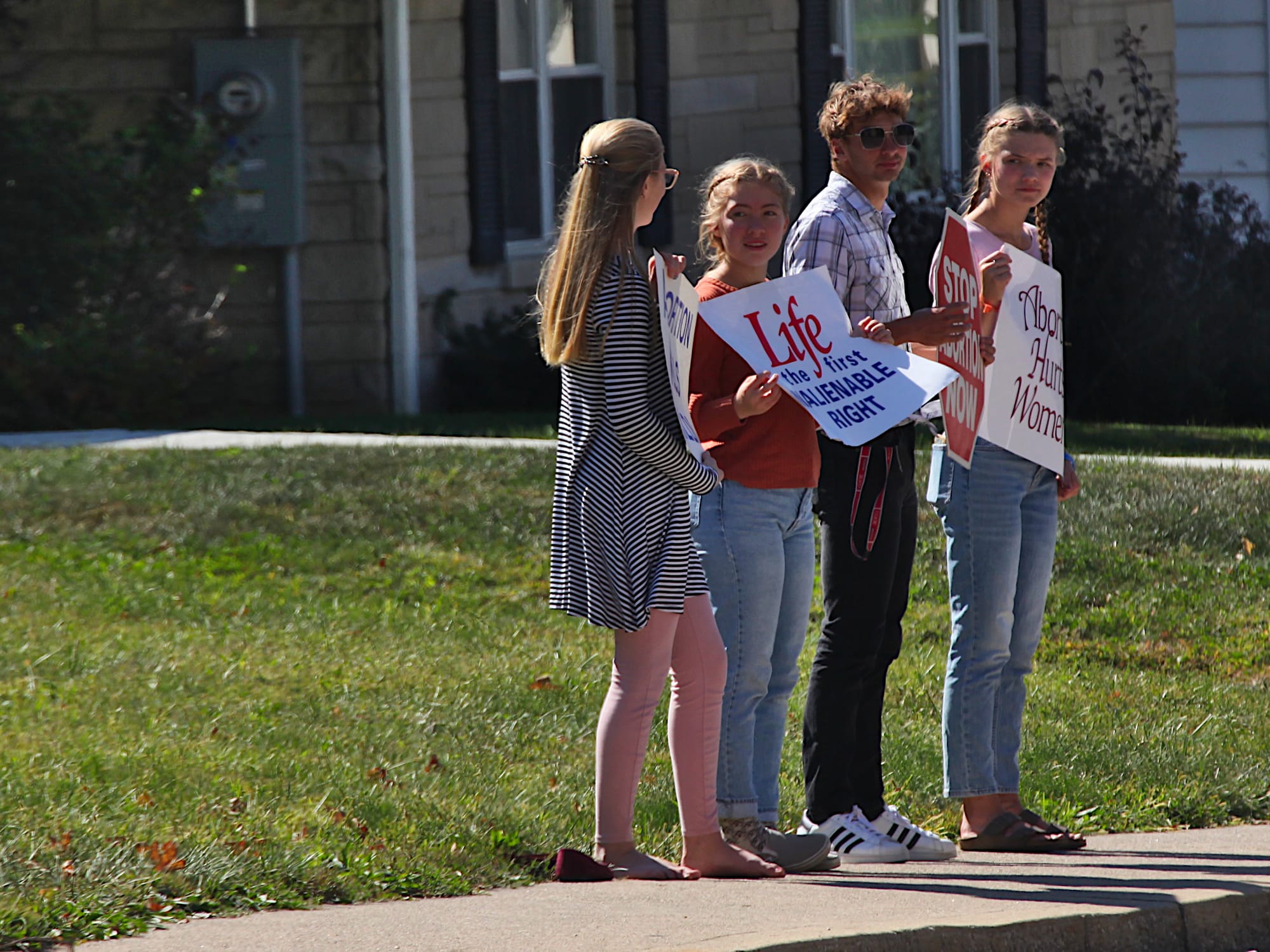
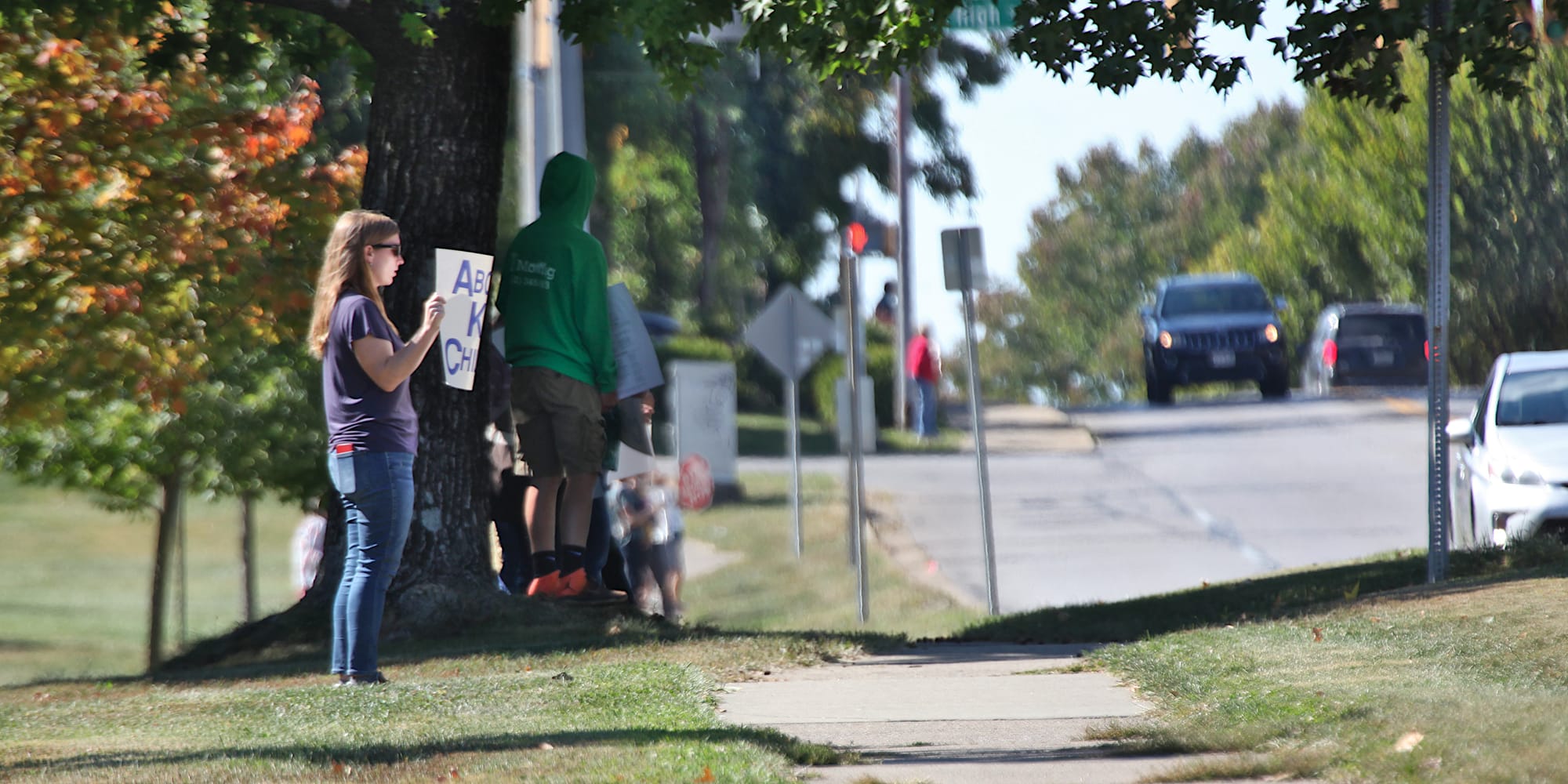
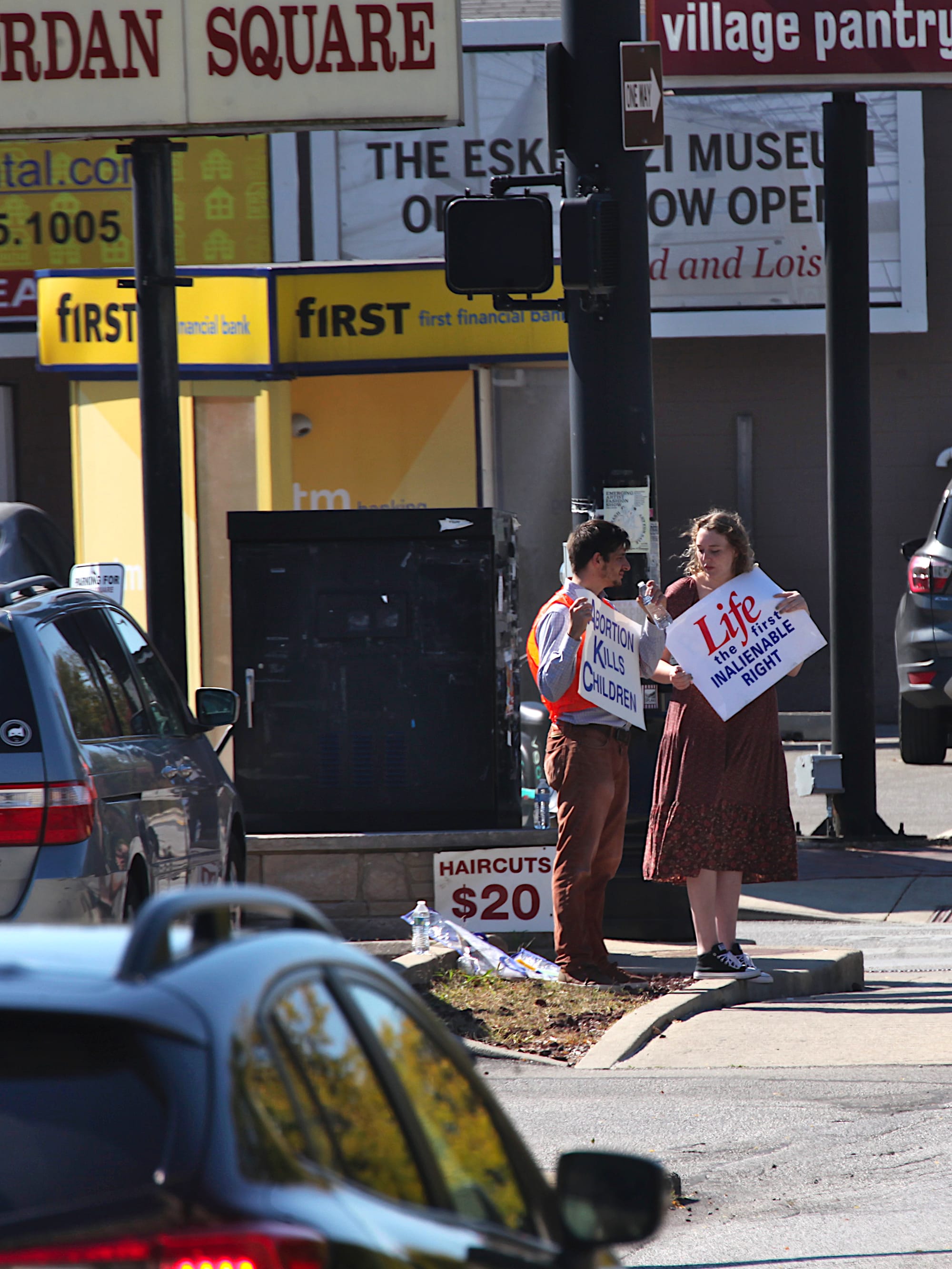
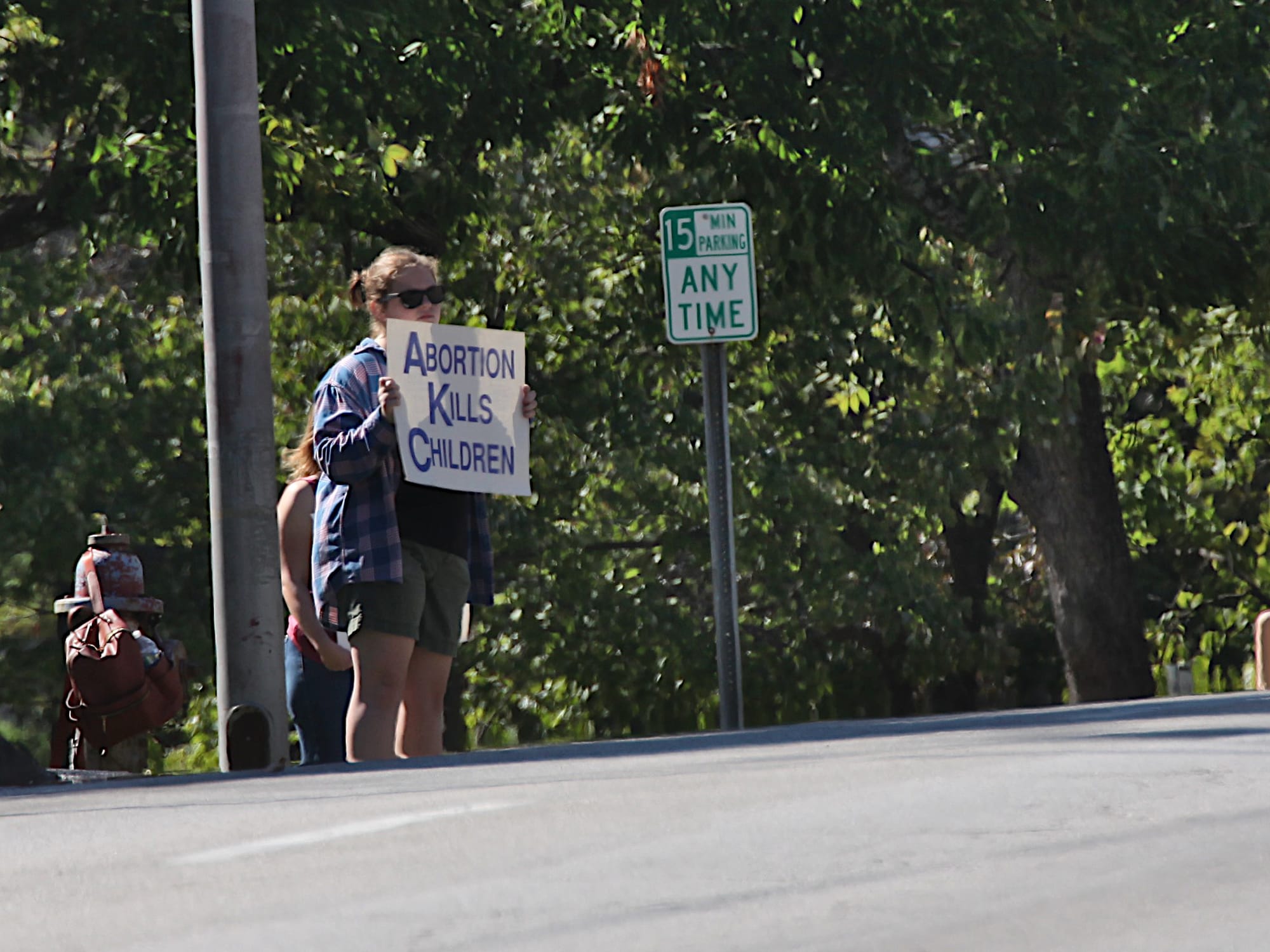
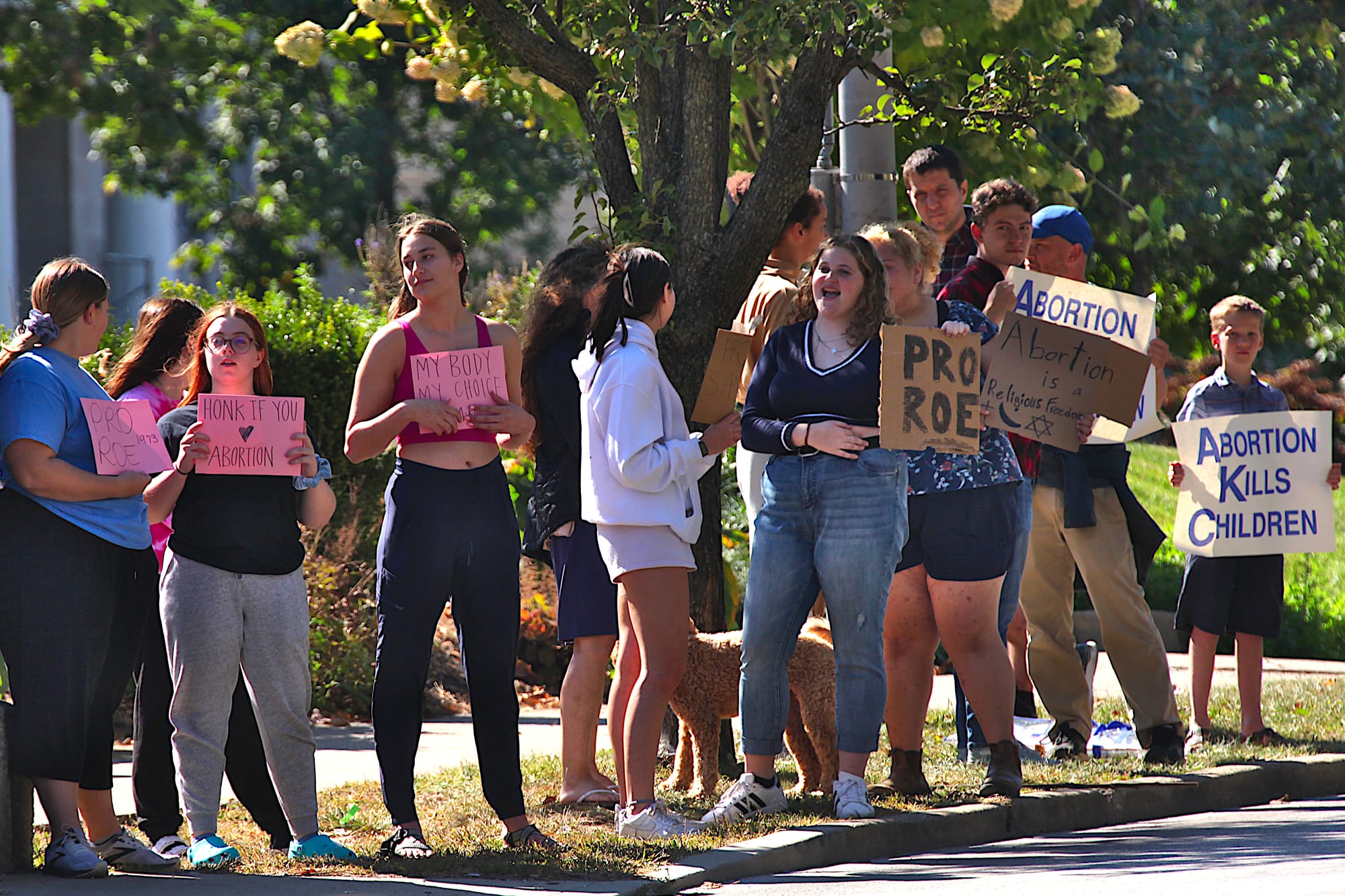
On Sunday afternoon, a two-mile stretch of 3rd Street in Bloomington, from College Mall Road to College Avenue, was punctuated by clusters of people every block or so, holding signs reading “Stop Abortion Now,” “Abortion Kills Children,” or other similar statements.
It was Bloomington’s edition of the National Life Chain demonstration, which is an annual event that started in 1987.
This year’s demonstration against abortion comes in the wake of the US Supreme Court Dobbs v. Jackson decision handed down in June, which overturned the 1973 ruling in Roe v. Wade. Soon after that ruling, Indiana’s state legislature passed SB1, which prohibits most abortions in the state.
The local demonstration also comes during during the run-up to decisions on the city of Bloomington’s 2023 budget, which includes a $2,500 reimbursement for expenses that a city worker might pay in connection with travel out of the state to obtain abortion services.
Also a part of the city’s 2023 budget proposal is a $100,000 allocation to fund an emergency reproductive health care grant program. The city council will hear a first reading this Thursday of a $100,000 appropriation that would fund the emergency reproductive health care grant program starting this year.
About the reimbursement for travel expenses, local Life Chain spokesman Eric Rasmusen wrote in response to an emailed B Square question: “I, of course, think the city should not fund abortions, but really they’re just grandstanding—$2,500 to travel to Illinois?”
Details about the city’s emergency grant program have not yet been revealed, but the mechanism looks like it will be similar to social services allocations that are made through the Jack Hopkins social services grant program. Both the city and county governments have for several years made grants to various social services nonprofits, the majority of which are unrelated to anything related to abortion services.
But the social services grant allocations do include organizations like Planned Parenthood and All Options Pregnancy Resource Center, which support abortion services. The grants allocated by local governments to those organizations have not historically included direct support for abortion services programs.
In recent years, the disagreement over granting of local public funds to organizations that support abortion services has settled into a kind of ritual.
The Monroe County council will divide the grants between Planned Parenthood and All Options as one allocation and everything else as another allocation. That allows county councilor Marty Hawk, the sole Republican on the seven-member fiscal body, to cast a vote against grants to Planned Parenthood and All Options, without voting against the other nonprofits she does support.
On the city’s side, sometimes city councilmembers will say that they have checked to make sure that none of the money requested by Planned Parenthood will directly fund abortion services, before voting yes on the grant allocations.
The validity of Indiana’s new law under the state’s constitution has been challenged in the local circuit court—a case that will likely be appealed to Indiana’s supreme court, no matter what the lower courts say.
Whatever the legal landscape might eventually be for social services grants that are made by local governments, Rasmusen wrote in response to a B Square question: “I think the city council will find some other way to signal that they support abortion.”
One signal the Bloomington city council has already sent this year came in the form of a resolution that among other commitments, says the city council will take “such steps as may be appropriate to protect and advance the rights of individuals in Indiana who can become pregnant.”
The city council’s late August resolution echoed a statement they had all signed, along with several other local officials, opposing the Dobbs v. Jackson decision. The statement reads in part: “As public officials, it is our responsibility to speak out when we see rights stripped away from our residents, and it is our obligation to oppose decisions that will cause unjust hardship and increase poverty for those we represent.”
The statement continues: “We object to any civil or human right being taken away by activists on the US Supreme Court and to any legislative action that undermines the well-being of our residents or the State of Indiana.”
In addition to the city council, Bloomington mayor John Hamilton’s administration has been vocal in opposing the Dobbs v. Jackson decision, as well as SB1, the law enacted by the state legislature that prohibits most abortions in the state of Indiana.
Statements from the Hamilton administration were followed by a proposed budget for 2023 that includes travel reimbursements for employees who go out of state for abortion services.
Protecting the privacy of such employees is something the city’s community advisory on public safety commission (CAPS) included in a recent resolution, which “condemns any action intended to abrogate the fundamental liberties of its people and affirms its commitment to protecting the right of its residents to make reproductive health decisions, including abortion care, for themselves.”
The CAPS resolution also says, “[I]t is recommended that the policy of the city be that, except to the extent otherwise required by state or federal law, city funds will not be used to…store or catalog any report of an abortion, miscarriage, or other reproductive healthcare act;”
Payments made to anyone or any company, with a description of the transaction, are typically included in the city’s publicly available online financial system. That would likely compromise the privacy of those who receive reimbursements for abortion-related travel expenses.
If those reimbursements are handled differently as financial transactions, it’s not clear what city records might answer the question: How much has the city spent on abortion-related travel expenses?
Responding to an emailed question from The B Square, Bloomington’s corporation counsel Beth Cate wrote: “We are still working through the details of how to structure and administer this benefit, and we are paying close attention to employee privacy as we do so.”
Cate indicated that exemptions in Indiana’s records law would likely protect an employee’s privacy. As far as how to track the city’s expenses for travel reimbursements, Cate wrote, “Until we’re further along in this, I can’t speculate on how to structure an appropriate APRA [Access to Public Records Act] request for records showing the total spent in the prior year on travel costs for employees seeking abortions out of state.”
Cate added, “Records aside, we may be able to just give the total figure in response to a question posed, if we have the data needed to calculate it and can do so without compromising individual privacy.”
Sunday’s Life Chain demonstration was highlighted by temperatures in the low 70s and sunny skies that lit up the reds and oranges of the early-turning leaves along 3rd Street. Rasmusen wrote to The B Square: “It’s the best Life Chain weather I’ve ever seen.”
Rasmusen had sent out a news release previewing the event that said, “The event usually features some drivers honking their horns in support of the men, women, and children holding signs, and some drivers shouting obscenities in opposition.”
On Sunday, The B Square heard some honks in support as well as obscenities. Some of the honks were drawn by a group of sorority members at 3rd and Woodlawn, who were counter-demonstrating, holding signs with statements like “My Body, My Choice.”
Along the Life Chain route, The B Square noticed a couple of interactions between demonstrators and passersby that seemed like peaceable dialogue between people with diametrically different views.
According to Rasmusen, those kind of conversations are a good thing, but the point of the Life Chain demonstration is the make sure that “people do not forget that abortion kills a living baby.” He added, “It is very good if conversations occur, but the demonstrators are told not to be confrontational, even in words.”
Rasmusen also reported that several demonstrators noticed this year that there were about as many thumbs-down gestures from passing motorists as obscene gestures. About that, Rasmusen wrote, “That was very heartening. One thing we’ve been losing in this country is civil argument, instead of insults and hostility. Thumbs-down shows disagreement, which we’ll always have, but it’s a polite way to show it.”
Bloomington’s city council will hold its 2023 budget hearing on Oct. 12.




Comments ()